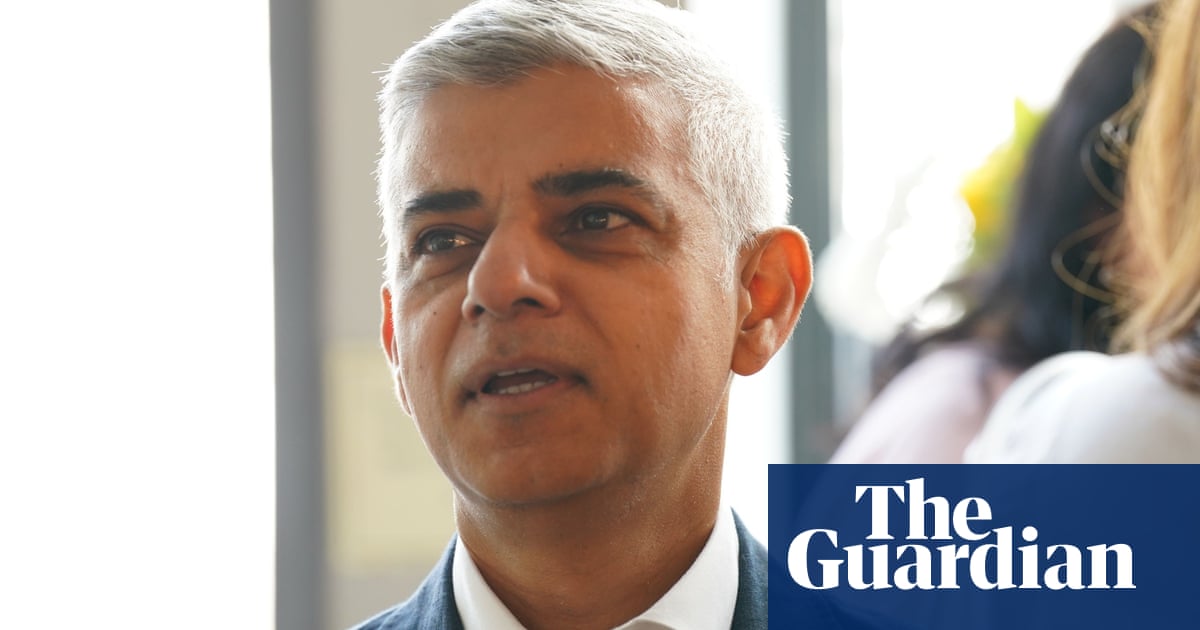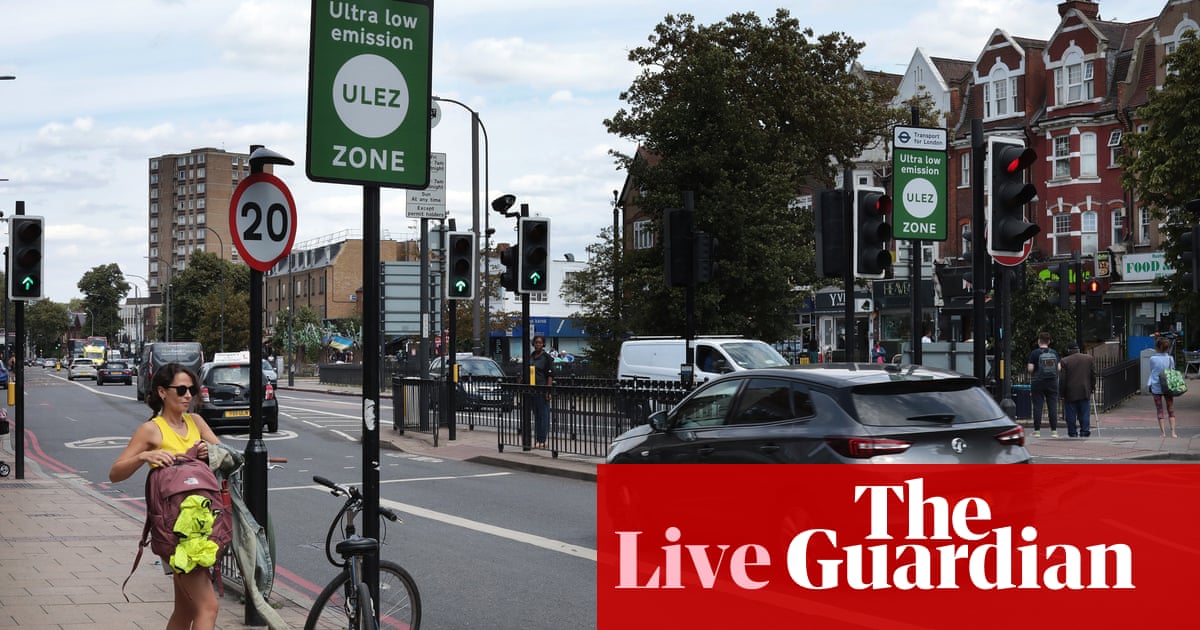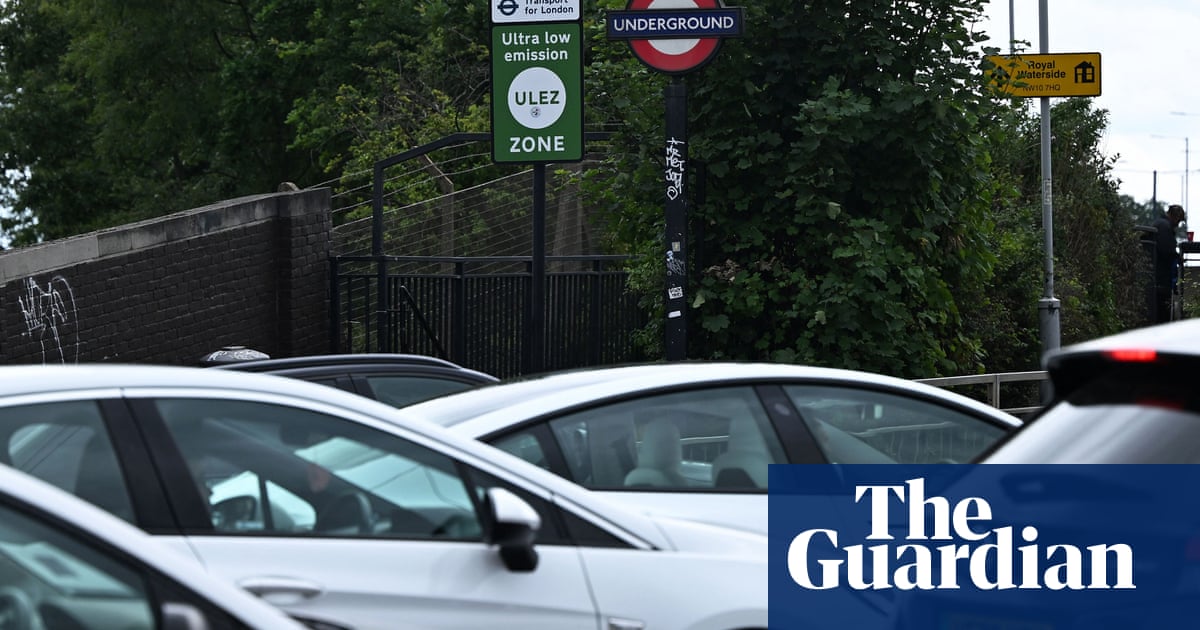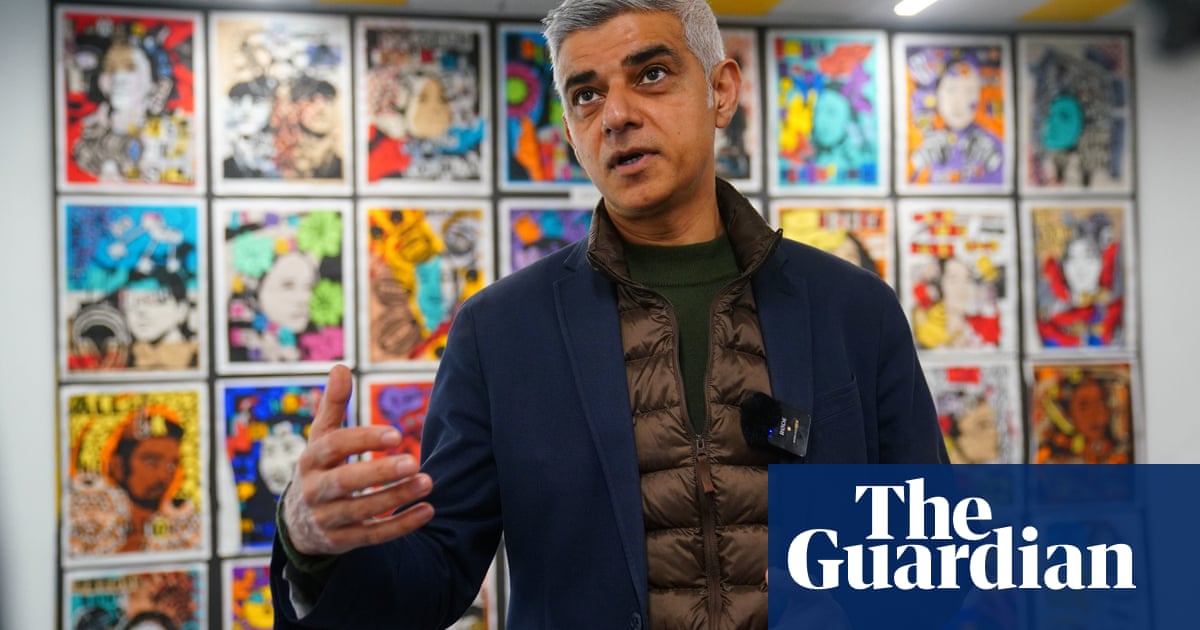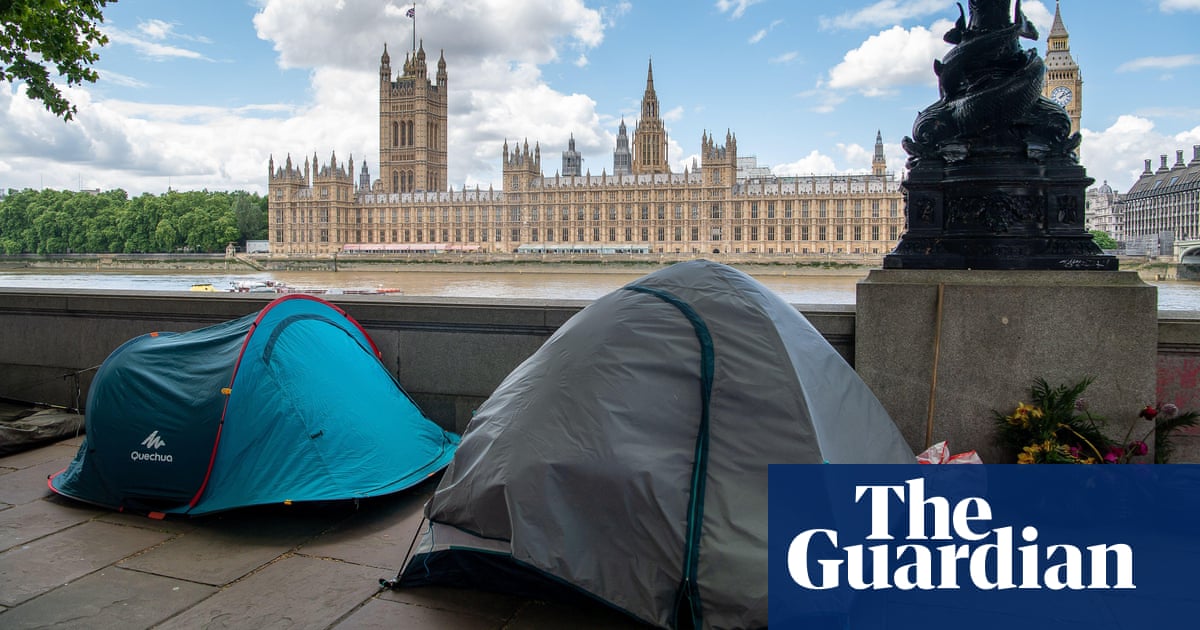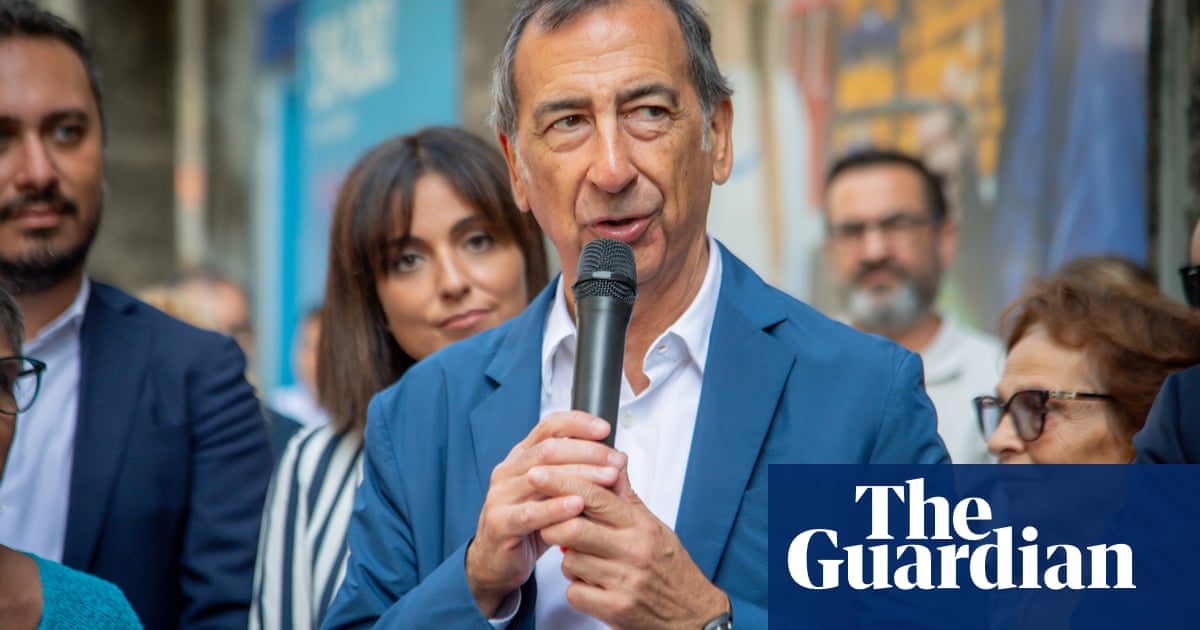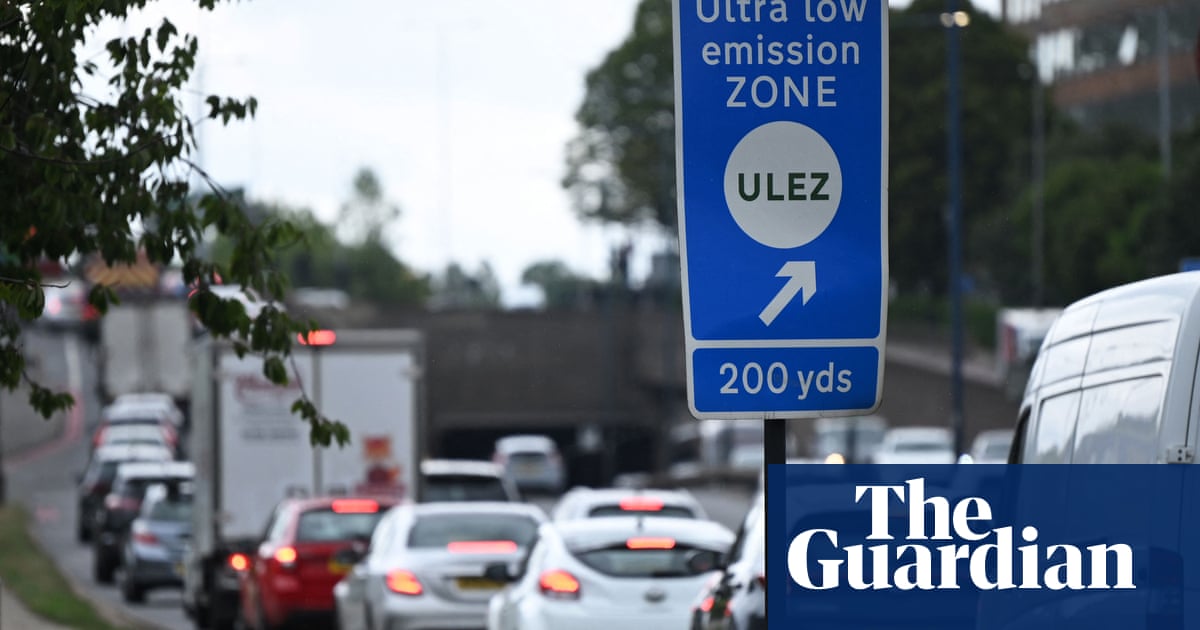
Sadiq Khan has expanded the grant scheme for London’s ultra-low emission zone (Ulez) to cover any household with a heavily polluting car or motorbike, spending an extra £50m after intense pressure over the political fallout of the plan.
The revised proposals, announced on Thursday, also notably increase the scrappage payments available for non-compliant vans owned by sole traders and small firms, as well as for minibuses and wheelchair-accessible vehicles.
His announcement follows the Conservatives’ unexpected narrow win in last month’s Uxbridge byelection, which many observers – including Keir Starmer and his shadow team – blamed on Khan’s plan to expand Ulez to outer London boroughs.
The Ulez scheme, which charges owners of older, more polluting vehicles £12.50 a day to drive them within the zone, began in central London in 2019 and was expanded with minimum controversy to most inner boroughs two years later.
The proposed extension to all 32 London boroughs on 29 August, however, has prompted a fierce reaction from opponents, including some of the capital’s Conservative councils, who argue that outer areas are more reliant on cars and have less dense public transport.
Khan has been adamant the plan needs to go ahead given the significant public health consequences of vehicle pollution. But after failing to take Boris Johnson’s old seat of Uxbridge, Starmer and several of his team urged the Labour mayor to think again.
Both camps will hope the new proposals reduce the political pressure including attacks by Rishi Sunak’s government and many Tory MPs who argue the expansion is poorly timed given cost-of-living pressures.
The enhanced scrappage programme, which takes the previous £110m cost to £160m, the extra paid for out of city hall reserves, keeps the basic grant for a car or van at £2,000 but makes everyone in the city with a non-compliant vehicle eligible.
The £2,000 payments were previously only available to people who receive one of a series of benefits, including child benefit and universal credit.
Khan’s officials argue that £2,000 is a sufficient sum. They say one vehicle sales website showed almost 5,000 Ulez-compliant cars for sale for less within 200 miles of central London.
Sole traders and businesses with fewer than 50 staff can now claim up to £7,000 for each van they replace, up from £5,000, with up to three vans eligible. The previous sum of up to £7,000 for replacing a minibus rises to £9,000, again to a maximum of three. The grant to retrofit a van or minibus has risen from £5,000 to £6,000.
There are also increases in grants to replace non-compliant vans or minibuses with electric equivalents, which were greater to start with. The grant to replace a wheelchair-accessible vehicle has been doubled from £5,000 to £10,000.
Khan and his officials will hope that the extra money will blunt attacks so political and media focus on the expansion later this month dies down relatively quickly. The mayor’s office points out that about 90% of cars used in outer London are already compliant.
The scheme only affects fairly old petrol cars – most built less than 16 years ago are compliant – but the equivalent figure for diesel vehicles is just six years.
Khan is directly elected, meaning that Starmer’s office is unable to dictate, but he has faced significant pressure to change course after the Uxbridge byelection. The Labour leader said the mayor needed to reflect on the impact of expanding Ulez, while Angela Rayner, Starmer’s deputy, said her party had lost because it failed to listen to the voters over the plan.
Khan said he had continued to listen to Londoners’ concerns over recent months and had responded with the increases to the scrappage scheme, but insisted he would not delay the implementation of the expanded zone.
“I have always said that expanding the Ulez to the whole of London was a difficult decision and not one I took lightly, but it’s a decision I remain committed to seeing through,” he said.
“I’m not prepared to step back, delay or water down vital green policies like Ulez, which will not only save lives and protect children’s lungs by cleaning up our polluted air, but help us to fight the climate crisis.”





